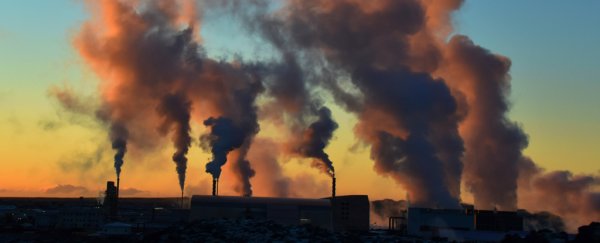
EU adopts new rules to significantly cut packaging waste with re-use targets
The European Union has formally adopted a regulation on packaging and packaging waste. The new ...

The World Wildlife Fund (WWF) scientists called on governments to accelerate action to phase out fossil fuels, slash emissions and restore nature.
After a marathon final two days of talks, countries had approved a new climate science report from the UN’s Intergovernmental Panel on Climate Change (IPCC). The report brought together current scientific research, with leading scientists and governments agreeing to a summary that laid bare the devastating reality and risks posed by the climate crisis, and the ways in which the world must respond.
The IPCC’s Sixth Assessment Synthesis Report (AR6) spotlighted the rapid emission reductions needed to meet intermediate climate targets – reducing greenhouse gas emissions by 43% by 2030 and 60% by 2035 to reach net zero by mid-century and avoid global temperatures exceeding the dangerous 1.5°C tipping point. It recognized, however, that current policies are off track to meet these targets, despite the range of cost-effective solutions available. Countries are expected to assess their progress toward achieving these targets in the global stocktake at the UN climate summit COP28 later this year.
WWF urged governments to heed the report’s warnings and act quickly to implement its recommendations to limit the impacts of the climate crisis. It called on leaders to rapidly slash emissions across all sectors, boost efforts to build resilience to extreme weather events and protect and restore nature. An accelerated phase-out of fossil fuels is the best way to avoid the planet overshooting 1.5°C and risking total climate catastrophe.
Dr. Stephanie Roe, WWF Global Lead Scientist, Climate and Energy, and Lead Author on the IPCC Working Group III report, said “This report represents the most comprehensive collection of climate science since the last assessment came out almost a decade ago. Weaving together the findings from the multi-thousand-page reports published over the last few years, it very clearly lays out the devastating impacts climate change is already having on our lives and ecosystems all around the world, the harsh future we all face if we don’t get our act together, and the solutions we can implement now to reduce emissions and adapt to climate change.”
“Some countries are already achieving sustained emissions reductions, but action is not yet at the scale or speed we need. With current emissions still at their highest level in human history, we are way off course, and the window to limit warming to 1.5ºC is rapidly closing. The sooner and more decisively we act, the sooner people and nature can reap the benefits of a cleaner, safer and more stable future. We have all the tools we need, so it’s well within our power to meet this challenge if we act now.”
IPCC reports are influential as they are used by policymakers and governments to inform their actions, shape UN climate change negotiations, and affect public opinion. The IPCC AR6 Synthesis Report Summary for Policymakers was discussed line-by-line by governments at the week-long approval session in Switzerland, which started on 13 March and was agreed to on 19 March.
WWF welcomed this latest IPCC report, and noted that it highlighted that many low-cost solutions already exist for the necessary economy-wide transformation; the cost of renewables like wind and solar has dropped by up to 85% over the past decade; the importance of nature and conservation – including the need to conserve 30% to 50% of Earth’s land, freshwater and ocean to maintain the resilience of biodiversity and ecosystem services at a global scale; and the urgency of action this decade, as well as by 2035 – the date that links into the next round of nationally determined contributions under the Paris Agreement.
Dr. Stephen Cornelius, WWF Global Deputy Lead Climate and Energy, said “The evidence is crystal clear, the science is unequivocal – it’s just the lack of political will that’s holding us back from the bold action that’s necessary to avert a climate catastrophe. Leaders who ignore the science of climate change are failing their people. A rapid phase-out of fossil fuels is essential, as is protecting and restoring natural ecosystems.”
“Nature is our secret ally in the fight against climate change. Natural systems have absorbed 54% of human-related carbon dioxide emissions over the past decade and have slowed global warming and helped protect humanity from much more severe climate change risks. We can’t hope to limit warming to 1.5°C, adapt to climate change and save lives and livelihoods, unless we also act urgently to safeguard and restore nature. Nature is a non-negotiable part of the solution to the climate crisis.”
The European Union has formally adopted a regulation on packaging and packaging waste. The new ...
Inaugurating the Abydos Solar Power Plant in the Upper Egypt governorate of Aswan represents a ...
Businesses that fail to adapt to climate risks like extreme heat could lose up to ...


اترك تعليقا